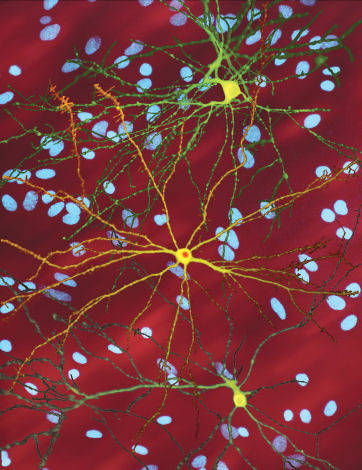For the first time, an experimental drug has successfully corrected the defect that causes Huntington’s disease.
Researchers at the University College London say that this breakthrough gives hope that the deadly neurodegenerative disease can be stopped, the BBC reports. The drug was injected into the spinal fluid of some Huntington’s patients, and safely lowered the levels of toxic proteins in their brains.
According to experts, this could be the biggest discovery in neurodegenerative diseases in 50 years.
Huntington’s is one of the world’s most damaging diseases – patients have described it as Alzheimer’s, Parkinson’s and motor neuron disease all in one fatal package.
Peter Allen, 51, was diagnosed with early-stage Huntington’s. He took part in the trial, and said,
You end up in almost a vegetative state, it’s a horrible end.
Allen has seen his mother, uncle and grandmother all die from the condition. Tests have shown that his siblings, Sandy and Frank, will develop the disease, as well.
The Allens have eight children among them, all of whom have a 50-50 chance of inheriting Huntington’s. The rapid death of brain cells in patients leaves them in permanent deterioration, affecting behavior, memory, movement, and thinking.
The disease affects people in their 30s and 40s, with patients dying between 10 to 20 years after symptoms start showing. Huntington’s is caused by an abnormality in a section of DNA called the huntingtin gene, which contains the instructions for making the protein huntingtin. Huntingtin is vital for brain development.
A genetic error disables the protein and makes it kill brain cells. This experimental treatment was created to silence the gene.
The researchers injected the drug into 46 patients, conducted at the Leonard Wolfson Experimental Neurology Centre at the National Hospital for Neurology and Neurosurgery in London.
The doctors were uncertain of the results; one fear was that the injections might cause meningitis. But this first human trial showed that the drug was safe, that the patients were able to tolerate it, and that it critically reduced huntingtin levels.
Sarah Tabrizi, the lead researcher and director of the Huntington’s Disease Centre at UCL, said, “I’ve been seeing patients in clinic for nearly 20 years, I’ve seen many of my patients over that time die. For the first time we have the potential, we have the hope, of a therapy that one day may slow or prevent Huntington’s disease. This is of groundbreaking importance for patients and families.”
This is not a cure, doctors say. There is still plenty of work to do before this drug can be rolled out, and more trials will be conducted to determine the extent of the drug’s efficacy.
























